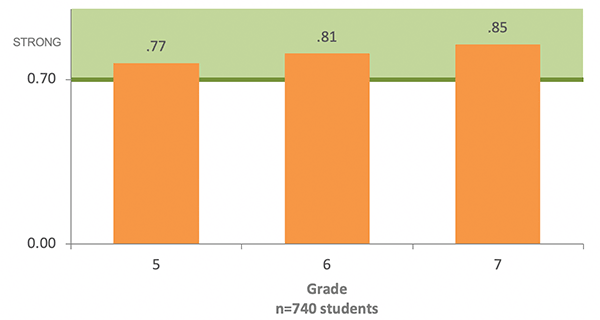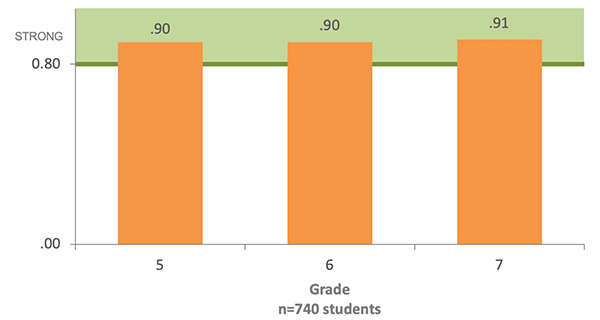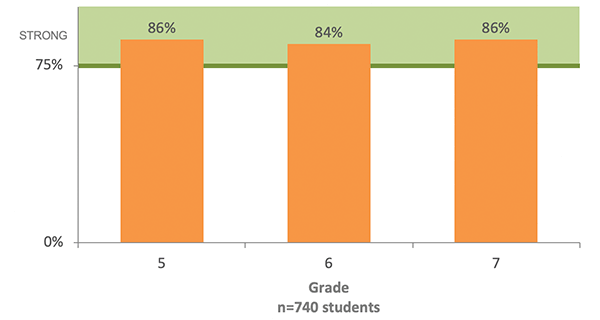The relationship between InSight and the FAST aReading assessment has been evaluated following standards established by the National Center for Intensive Intervention (NCII). As detailed below, InSight meets both correlation and classification accuracy standards when analyzed in relation to FAST aReading. Therefore, educators can be confident in InSight results and the subsequent intervention decisions they make for their students.
InSight is Strongly Correlated with FAST aReading
A statistical correlation measures the strength of the relationship between the results of two assessments. A value of 0.70 or higher* is considered a strong correlation and a key criterion of validity by the NCII. All correlation values between InSight and the FAST aReading assessment for grades 5-7 meet this standard.

InSight Classifies Students Similarly to FAST
The NCII considers an Area Under the Curve (AUC) value of 0.80 or higher** to be convincing evidence that an assessment has met the “classification accuracy” standard. This indicates that InSight and FAST aReading have equivalent standards for determining whether students are at risk of not meeting their reading goals and are in need of an intervention. All AUC values between InSight and FAST aReading for grades 5-7 meet this standard.

InSight and FAST aReading were also evaluated with another important classification statistic. The Overall Classification Accuracy Rate is the percentage of students who were classified by the FAST aReading assessment as being at low/no or some/high risk of needing a reading intervention and were classified similarly by InSight. Although the NCII requires this statistic as part of its evaluation process, it does not set a threshold criterion. Reading Plus believes that two assessments which have similar expectations for student performance should classify 75% or more of students in the same way. InSight and FAST meet this level of equivalent classification in grades 5-7.

